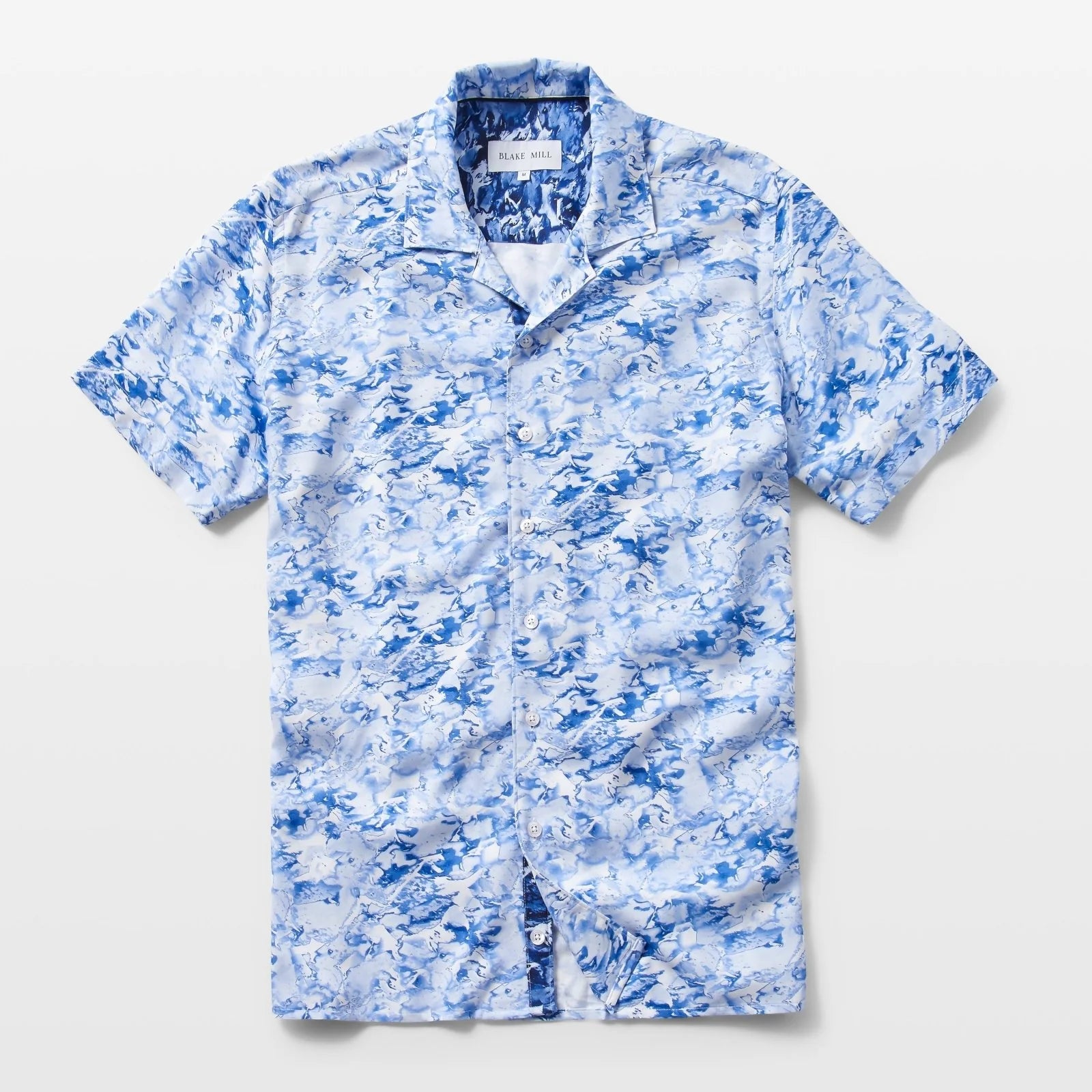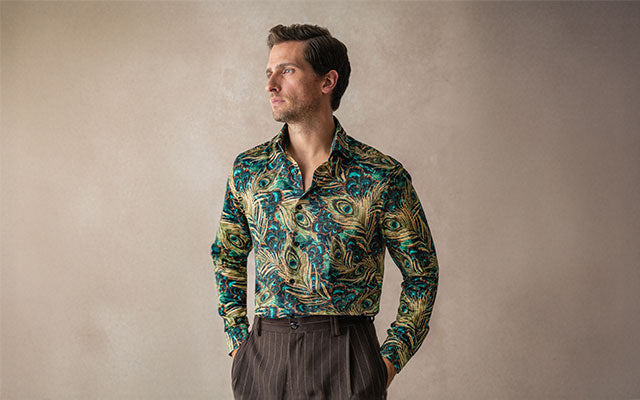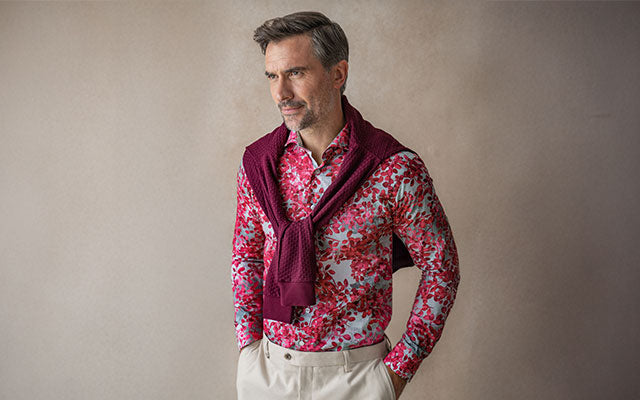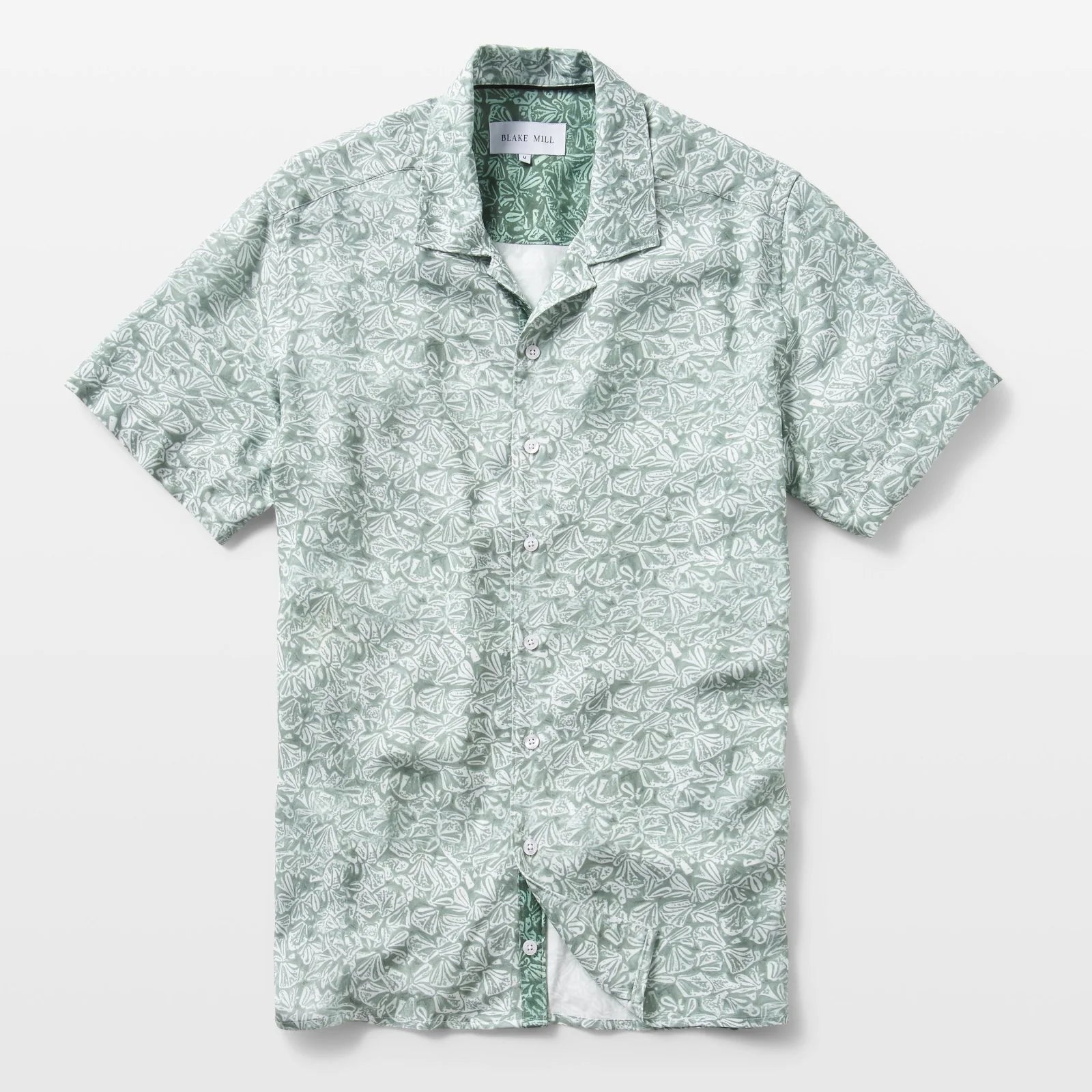Eco-Friendly and Sustainable Short Sleeve Shirt Options
Key Highlights
- Sustainable tees are the way to go if you want to reduce your carbon footprint and contribute to a planet.
- Opt for shirts made from organic cotton, which is grown without the use of harmful pesticides and chemicals.
- Look for brands that use renewable energy in their manufacturing processes to minimise their environmental impact.
- Say no to toxic dyes by choosing shirts that are dyed using natural and non-toxic alternatives.
- Support brands that are actively working to reduce textile waste and promote a circular economy in the fashion industry.
Introduction
In today's world, sustainability is a hot topic, and for good reason. With the fashion industry being one of the biggest contributors to environmental pollution, it's important to make conscious choices when it comes to our clothing. And what better place to start than with our everyday wardrobe staple - the short sleeve shirt?
Short sleeve shirts are versatile, comfortable, and perfect for the warmer months. But did you know that they can also be eco-friendly and sustainable? By opting for shirts made from sustainable fabrics and supporting brands that prioritise ethical practices, you can make a positive impact on the planet without compromising on style.
In this blog, we will explore the importance of choosing sustainable fabrics, the environmental impact of traditional cotton, innovative sustainable materials to look for, how to identify truly sustainable and eco-friendly brands, and tips for styling and caring for your sustainable short sleeve shirts. We will also dive into the future of sustainable fashion and the role of technology and consumer behaviour in driving change.
So, if you're ready to make a difference and build a more eco-friendly wardrobe, keep reading to discover the best options for eco-friendly and sustainable short sleeve, summer shirts.

The Importance of Choosing Sustainable Fabrics
Choosing sustainable fabrics is crucial in reducing the negative impact of the fashion industry on the environment. One of the best options is certified organic cotton, which is grown without the use of harmful pesticides and chemicals. Look for shirts that are certified by the Global Organic Textile Standard (GOTS) to ensure their organic status. Another important factor to consider is whether the brand practises fair trade, ensuring fair wages and safe working conditions for the workers involved in the production process. By opting for sustainable fabrics, you can make a conscious choice to support ethical and eco-friendly practices in the fashion industry.
What Makes a Fabric Sustainable?
Sustainable fabrics are those that are produced using environmentally friendly methods and materials. Here are a few factors that contribute to a fabric being considered sustainable:
- Renewable energy: Look for brands that use renewable energy sources, such as solar or wind power, in their manufacturing processes.
- Organic cotton: Opt for shirts made from certified organic cotton, which is grown without the use of harmful chemicals and pesticides.
- Tencel Lyocell: This fabric is made from sustainably harvested wood pulp and is produced in a closed-loop system, minimising waste and chemical usage.
- Recycled materials: Some brands use recycled materials, such as plastic bottles or old clothing, to create new fabrics, reducing the need for virgin resources.
By choosing fabrics that adhere to these sustainable practices, you can make a positive impact on the environment and promote a more sustainable fashion industry.
The Environmental Impact of Traditional Cotton
Traditional cotton production has a significant environmental impact. It contributes to a large carbon footprint due to the use of synthetic fertilisers and pesticides, as well as the energy-intensive processes involved in its cultivation and manufacturing. Additionally, the dyes used in conventional cotton often contain toxic chemicals that can harm both the environment and human health.
Water consumption is another major concern. Conventional cotton farming is notorious for its high water usage, putting a strain on water resources in regions where it is grown. By choosing sustainable alternatives to traditional cotton, such as organic cotton, you can help reduce the environmental impact of the fashion industry and promote more responsible and eco-friendly practices.
Innovative Sustainable Materials to Look For
Fortunately, there are several innovative and sustainable materials available that offer eco-friendly alternatives to traditional fabrics. Here are a few to look out for:
- Hemp: Hemp is a highly sustainable crop that requires minimal water, pesticides, and fertilisers to grow. It is also known for its durability and breathability.
- Bamboo: Bamboo is a fast-growing and renewable resource that can be turned into soft and comfortable fabrics. It requires less water than cotton and has natural antibacterial properties.
- Tencel Lyocell: As mentioned earlier, Tencel Lyocell is made from sustainably harvested wood pulp and is produced in a closed-loop system, making it an environmentally friendly choice.
- Merino wool: Merino wool is known for its natural breathability and temperature-regulating properties. It is also biodegradable and can be sourced from ethically raised sheep.
By incorporating these sustainable materials into your wardrobe, you can make a positive impact on the planet and support brands that prioritise eco-friendly practices.
How to Identify Truly Sustainable and Eco-Friendly Brands
Identifying truly sustainable and eco-friendly brands can be a challenging task, but there are a few key factors to consider. First, look into the brand's supply chain and ensure that they have transparent and ethical practices in place. Check if they have a code of conduct that outlines their commitment to fair labour practices and environmental responsibility. Additionally, certifications such as being a B Corp or a member of the Fair Wear Foundation can provide reassurance that the brand is dedicated to sustainable and ethical practices. By doing your research, you can make informed choices and support brands that align with your values.
Certifications and Standards to Look Out For
When shopping for sustainable short sleeve shirts, it's essential to look out for certifications and standards that ensure the authenticity of the brand's claims. Here are a few certifications and standards to keep in mind:
|
Certification/Standard |
Description |
|
GOTS certified organic cotton |
This certification ensures that the cotton used in the shirt is grown without the use of harmful chemicals and pesticides. It also ensures fair labour practices throughout the supply chain. |
|
Fairtrade organic cotton |
This certification guarantees that the cotton used in the shirt is sourced from farmers who receive fair wages and work in safe conditions. It also promotes sustainable farming practices. |
|
Global Organic Textile Standard (GOTS) |
This standard covers the entire production process, from the harvesting of raw materials to the final product. It ensures that the shirt is made from organic fibres and meets strict environmental and social criteria. |
By looking for these certifications and standards, you can make sure that the shirts you purchase are truly sustainable and eco-friendly.
The Role of Transparency in Sustainability
Transparency plays a crucial role in sustainability. Brands that are transparent about their supply chain and manufacturing processes allow consumers to make informed choices. Look for brands that disclose information about their suppliers and ensure that they have ethical practices in place. Transparency also extends beyond the supply chain. Some brands work with third-party organisations to verify their sustainability claims and ensure accountability. Additionally, advertising partners play a role in promoting transparency by providing information on the materials used and the brand's commitment to sustainability. By supporting transparent brands, you can contribute to a more sustainable fashion industry and encourage others to do the same.
Questions to Ask Before Making a Purchase
When considering a purchase, it's essential to ask the right questions to ensure that the clothing brand aligns with your values. Here are a few questions to consider:
- Is the brand committed to ethical fashion practices and transparency in their supply chain?
- What materials are used to make the shirt, and are they sustainable and eco-friendly?
- Does the brand have any certifications or partnerships that promote fair trade and responsible manufacturing?
- What steps has the brand taken to reduce its environmental impact, such as reducing water usage or implementing recycling programs?
By asking these questions, you can make an informed decision and support brands that prioritise ethical practices and sustainability in the fashion industry.
Styling Your Sustainable Short Sleeve Shirts
Styling your sustainable short sleeve shirts is a breeze, thanks to their versatility. Oxford shirts are a classic option that can be dressed up or down for various occasions. Opt for a regular fit for a comfortable and timeless look. Pair your shirts with jeans or chinos for a casual yet put-together spring style. Consider building a minimalist wardrobe by investing in a few high-quality and versatile pieces that can be mixed and matched effortlessly. With sustainable short sleeve shirts, you can create stylish and eco-friendly outfits that reflect your personal style.
Pairing with Other Sustainable Garments
Short sleeve shirts can be easily paired with other sustainable garments to create stylish and eco-friendly outfits. Here are a few ideas:
- Layering: Wear your short sleeve shirt over a sustainable t-shirt or under a lightweight sustainable jacket for added style and versatility.
- Accessories: Add eco-friendly accessories like a sustainable belt or a vegan leather bag to complete your look.
- Loungewear: Pair your short sleeve shirt with sustainable loungewear, such as organic cotton joggers or bamboo shorts, for a comfortable and eco-conscious outfit at home.
- Activewear: If you're heading to the gym or going for a run, choose sustainable activewear that is made from recycled materials or organic fabrics.
By pairing your sustainable short sleeve shirts with other eco-friendly garments, you can create fashionable and conscious outfits that prioritise the planet.
Tips for a Minimalist, Eco-Friendly Wardrobe
Building a minimalist, eco-friendly wardrobe is a great way to reduce waste and make conscious choices. Here are a few tips:
- Create a capsule wardrobe: Invest in a few high-quality, versatile pieces that can be mixed and matched to create a variety of styles.
- Choose sustainable fabrics: Opt for shirts made from sustainable fabrics such as organic cotton, linen, or twill. These materials are durable, breathable, and better for the environment.
- Embrace timeless styles: Choose classic designs and colours that won't go out of fashion, allowing you to wear your shirts for years to come.
- Take care of your clothes: Follow the care instructions provided by the brand to maximise the lifespan of your sustainable garments.
By following these tips, you can create a minimalist wardrobe that is both stylish and eco-friendly.
Caring for Your Sustainable Clothes to Maximise Lifespan
Caring for your sustainable clothes is essential to maximise their lifespan and minimise waste. Here are a few care tips:
- Follow the care instructions provided by the brand to ensure that you're washing and drying your shirts correctly.
- Opt for eco-friendly laundry detergents that are free from harsh chemicals and toxins.
- Whenever possible, choose air drying over using a dryer to reduce energy consumption.
- If your shirt requires ironing, opt for an easy iron fabric to minimise the time and energy required.
By taking care of your sustainable clothes, you can ensure that they last longer and continue to contribute to a more eco-friendly wardrobe.
The Future of Sustainable Fashion
The future of sustainable fashion looks promising, thanks to advancements in technology and a shift in consumer behaviour. Technology is playing a significant role in the fashion industry, from sustainable innovations in fabric production to improved supply chain management. Consumers are becoming more aware of the environmental impact of their purchases and are demanding more sustainable and ethical options. With increased awareness and conscious consumerism, the fashion industry is being driven towards a more sustainable and eco-friendly future.
Emerging Trends in Eco-Friendly Apparel
One emerging trend in eco-friendly apparel is the use of sustainable materials such as New Zealand merino wool. This natural fibre is known for its breathability and temperature-regulating properties. Flannel shirts made from organic cotton or recycled materials are also gaining popularity as they provide warmth and comfort while being eco-friendly. Gingham, a classic pattern that never goes out of style, is also making a comeback in sustainable fashion. By embracing these emerging trends, you can stay stylish while contributing to a more sustainable fashion industry.
The Role of Technology in Sustainable Fashion
Technology plays a crucial role in driving sustainability in the fashion industry. The use of renewable energy sources, such as solar or wind power, in manufacturing processes can significantly reduce the carbon footprint of clothing production. Textile innovation is also advancing, with the development of new fabrics made from recycled materials or sustainable alternatives to traditional textiles. Additionally, technology enables better supply chain management, allowing brands to track and trace their products, ensuring transparency and accountability. By leveraging technology, the fashion industry can continue to make significant strides toward a more sustainable future.
How Consumers Can Drive Change
Consumers have the power to drive change in the fashion industry through their purchasing decisions and behaviours. Here's how:
- Demand sustainable options: By choosing to support brands that prioritise sustainability, consumers can create a demand for eco-friendly and ethical products.
- Make ethical choices: Opt for brands that have transparent supply chains, use sustainable materials, and support fair labour practices.
- Educate and spread awareness: Share information about sustainable fashion with friends and family, encouraging them to make conscious choices as well.
- Advocate for change: Support initiatives that push for stricter regulations and standards in the fashion industry, ensuring a better and more sustainable place for all.
By taking these steps, consumers can have a significant impact on the fashion industry and contribute to a more sustainable future.
Frequently Asked Questions
Why Are Sustainable Fabrics Often More Expensive?
Sustainable fabrics are often more expensive due to several factors. These include the use of fair wages for workers, higher quality materials, and the implementation of sustainable practices throughout the supply chain. However, investing in sustainable fabrics is a long-term investment in both the environment and the longevity of your wardrobe.
Can Sustainable Fashion Really Make a Difference?
Yes, sustainable fashion can make a significant difference. By reducing the carbon footprint of the fashion industry, promoting ethical production practices, and encouraging conscious consumerism, sustainable fashion has the power to create a positive global impact and contribute to a more sustainable future.
How Do I Verify a Brand’s Sustainability Claims?
Verifying a brand's sustainability claims can be done through various means. Look for certifications such as GOTS or Fairtrade, check for transparency in the brand's practices, review sustainability reports, and ensure that there is third-party verification of their claims. This will help you make informed decisions and support truly sustainable brands.
Looking for further summer shirt inspiration? Read our guide 'Men's Short Sleeve Shirts: Styling Tips for Accessories'.





